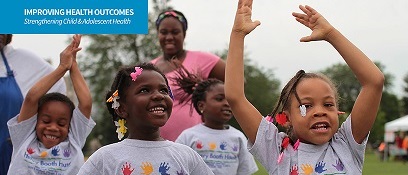Addressing the Health of our Teens in Chicago

When I first decided to join the National Health Corps Chicago, I really didn't know what I was getting myself into. I went to college in Chicago so I was already pretty aware of the how segregated it is, and how resources are not really shared equitably throughout the city. Our trainings with the National Health Corps really served to open my eyes to just the range of these disparities and how they continue to affect our health policies today. In 2016, the City of Chicago launched a campaign called Healthy Chicago 2.0, designed to improve the health-equity and overall well-being of the city by 2020. Specifically, their child and adolescent portion of the plan aimed to lower the rate of teen pregnancy in Chicago. According to the Centers for Disease Control and Prevention, the national rate of teen pregnancy has continued to steadily decrease throughout the years, with recent reports listing a birth rate of 22.3 per 1,000 women among teenagers. However, Chicago's teen birth rate still stands at 1.5 times the national rate, with Hispanic and African American teens being over four times more likely to give birth than their white counterparts. Only about 38 percent of teen moms earn a high school diploma and less than 2 percent graduate from college. This led to a large investment in education and support services for adolescents to help them make healthier informed choices and grant them access to the appropriate prenatal care.
As a Community Program Educator serving at Heartland Human Care Services I facilitate our Opciones Saludables/Healthy Options program, which is geared toward the Pregnant and Parenting Youth population of the city of Chicago. The program was originally started to address the high teen pregnancy rate among the Hispanic community, but has spread and adapted to fit the needs of the diverse Chicago population. Our goal is to help teenagers in high school finish school while providing them with the support services and education they need as soon-to-be parents. This includes a wide range of topics from sexual health and breastfeeding support, to parenting and financial literacy. We are one part of the many programs and organizations that are helping Chicago reach their health targets by 2020. As I continue serving with Heartland this year, I am excited to see what our impact will have on these individuals and see them grow into future peer leaders and parents.

This blog post was written by NHC Chicago 2017-18 member Cecilia Magos.
Cecilia Magos is a Community Program Educator at Heartland Human Care Services.